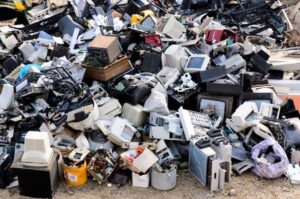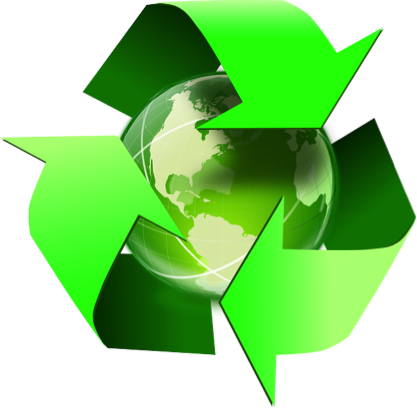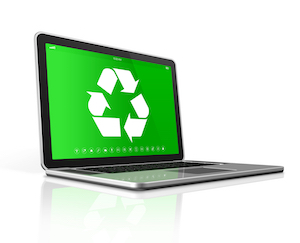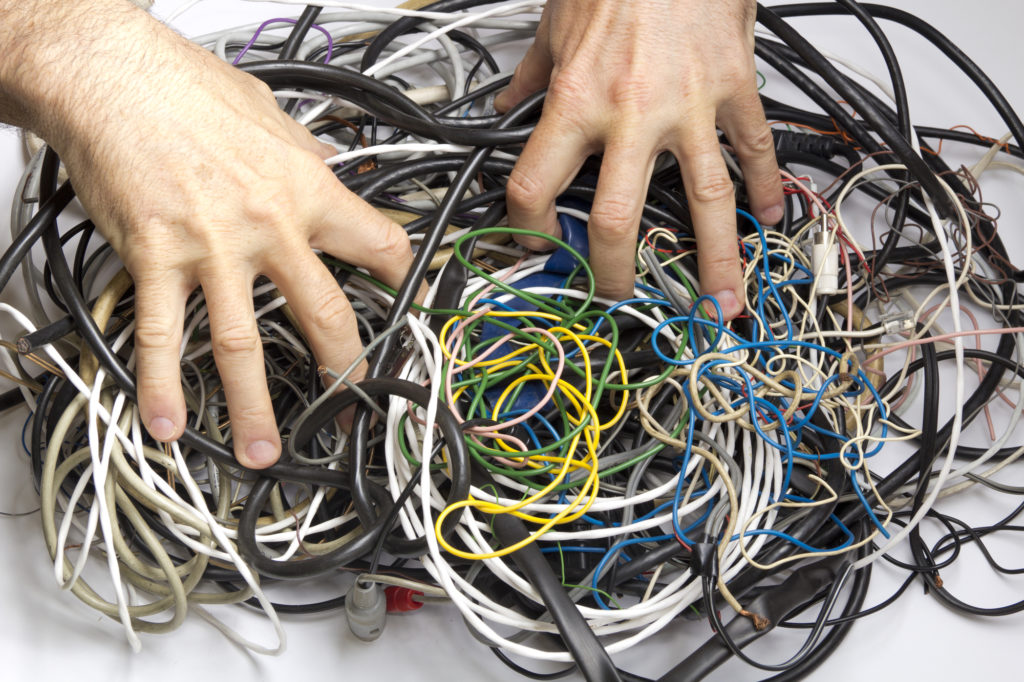Are you wondering where to recycle electronics without any hassle? My list below includes local drop-off locations as well as free ways to send your stuff to recycling locations and make some money doing it.
what is included? Cell phones, other mobile devices, computers, fax machines, lap tops, copiers, televisions, monitors and more! For almost anything with a string, I’ve got you covered!!
But first…why bother?

save the planet: Our electronics are made from valuable natural resources and materials such as metals, plastics and glass. Mining and manufacturing all of these materials requires energy. Donating or recycling used electronics helps protect nature, preserve our natural resources, and avoid air and water pollution. Staples.com says:
Electronic waste is the fastest growing waste stream in America. The average American household owns 24 electronic devices, not to mention all the electronics used by businesses. Every year millions of these devices become obsolete.
One pound of smartphone contains 324 times more gold, 13 times more copper and 6.5 times more silver than a pound of ore found in normal mining operations. Recycling helps in creating jobs as well as keeping hazardous materials like lead, mercury and cadmium out of the environment.
Stop Climate Change: Recycling saves energy. According to the U.S. Environmental Protection Agency*, 35,000 pounds of copper, 772 pounds of silver, 75 pounds of gold and 33 pounds of palladium can be recovered from every million cell phones we recycle. Recycling one million laptops saves energy equal to the electricity used by more than 3,500 American homes in a year. * Aluminum can be recycled using less than 5 percent of the energy required to make the original product. Producing new plastic from recycled materials uses only two-thirds of the energy required to produce it from raw materials. On the other hand, producing glass from virgin material requires 30 percent more energy than producing it from crushed, used glass.**
Cut Clutter: If you have a drawer or shelf full of old cell phones, tablets, computers, or monitors, they’re only taking up space, collecting dust, and adding clutter (and I hate clutter). Recycling your old electronics makes room for new stuff and creates some breathing room which is usually pretty healthy for most people.
Want more tips for reducing clutter? Here’s how I do it!
save money: Sometimes you can trade-in old electronics and use the trade-in to offset the purchase of a new replacement. Sometimes you can sell your old electronics for cash that you can spend on replacement. And sometimes you save other people cash when they buy your recycled electronics for less than the price the item would cost brand new. When you recycle your old gear, someone, somewhere, is saving money.
Reduce e-waste: Throwing old electronics in the trash doesn’t benefit anyone. Heavy metals in electronic circuit boards can break down and get into our groundwater (which gets into our drinking water), not to mention the folly of throwing away all the materials used to manufacture electronics. Could. The US produces about 6.3 million tons, or 14% of the world’s electronic waste. Currently only about 25% is recycled.***

7 Ways to Recycle Electronics Without the Hassle
Most electronics are surprisingly easy to recycle. This way:
♦Sell on Facebook Marketplace – Post a photo of your device on Facebook Marketplace along with a description. If you want to get rid of something, you can sell it for as little as $1. Or, either ask the “going” price. At least, you can easily take the best price offered to you.
♦Give at Freecycle.org or your local Buy Nothing group – BuyThing groups are wonderful for keeping all types of items out of the trash and into the hands of people who will continue to use them.
♦Donate to a local school or nonprofit – Many schools, churches, libraries, community centers and youth groups are in dire need of electronics. Make some phone calls to groups in your area to see if they could use what you have.
♦ Skip to Best Buy – Best Buy takes back all types of electronics including PCs, laptops, phones, televisions and more. (Note: Staples used to be used to take back electronics, but this service has been suspended as a COVID precaution.)
♦ Back to HP, Dell, Samsung, Xerox, Sprint, LG, T-Mobile, Apple – Most electronics manufacturers will take back old equipment when you purchase new equipment. Some will send you free mailing labels so you don’t have to pay any shipping costs. EPA offers this Handy list of contacts for recycling options For all major electronics manufacturers.
♦ Drop off at your local hazardous waste facility -Most local hazardous waste facilities will accept electronics for recycling.
♦Drop off during local electronics recycling drives – Once a year, I can drop off used electronics at my community’s electronics recycling drive. it is very convenient!
Recycle TVs, computers and tablets, cell phones and radios, ink and toner cartridges, video games and gadgets, cameras and webcams and more.
Memorization:
♠Before purchasing new electronics, see if you can upgrade the hardware or software on your existing devices. You’ll save money on buying new and also help protect the planet.
FAQs:
All electronics such as computers, televisions, printers, laptops, cameras, and smartphones that are no longer being used or discarded usually go to waste. The items near end-of-life end up being thrown away or refurbished if possible. It is still not common to securely dispose of electronics or recycle them. In 2019, only 17.4% of all e-waste was recycled worldwide.
You can recycle almost all modern electronic items, including appliances like microwaves, power equipment, and even lamps. Only a few electronics that contain lead, mercury, or any dangerous chemicals cannot be recycled without safety measures. Old or used laptops can be sold online for cash or donated to schools.
The rising amount of e-waste is a significant threat to the environment, polluting rivers, oceans, and land. Most electronics contain precious metals like gold and palladium, which can be recovered and used in other products. Appliances and gadgets also contain toxins or chemicals that might leak into water or the ground, leading to health problems in adults and children.
Computers and laptops can be easily refurbished and sold again, as there is a large market for such products. Increasing storage or getting a new display can extend the lifespan of the device. Repairing and reusing many items can help avoid electronic waste.
It is recommended that you recycle or dispose of old electronics as soon as you upgrade to a newer model or equipment. Waiting too long can result in a pile of gadgets that no one can use. Recycling them promptly prevents more e-waste from ending up in landfills.
Look for an e-waste recycling business or facility near your location to drop off used electronic items for disposal. Various electronic waste management companies have set up recycling centers to collect appliances and devices that need safe disposal. Some corporations run trade-in programs, allowing people to recycle old smartphones, tablets, or laptops for free or receive a gift card in return.
Sometimes, you may need to make a small payment for recycling used electronics. Companies managing toxic e-waste may charge a fee to collect it and prevent chemicals from leaking. Items like printers, old televisions, and appliances that pose environmental threats are challenging to recycle.




